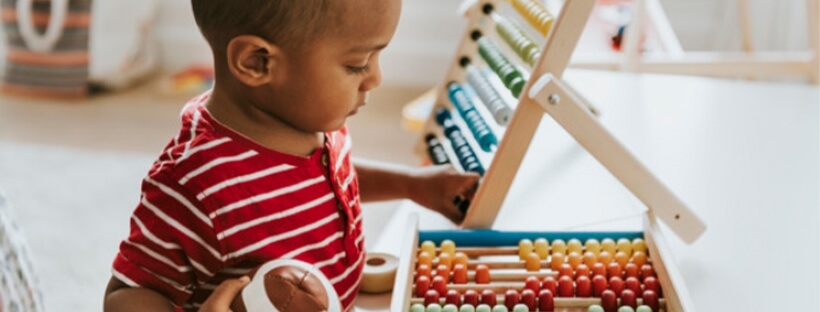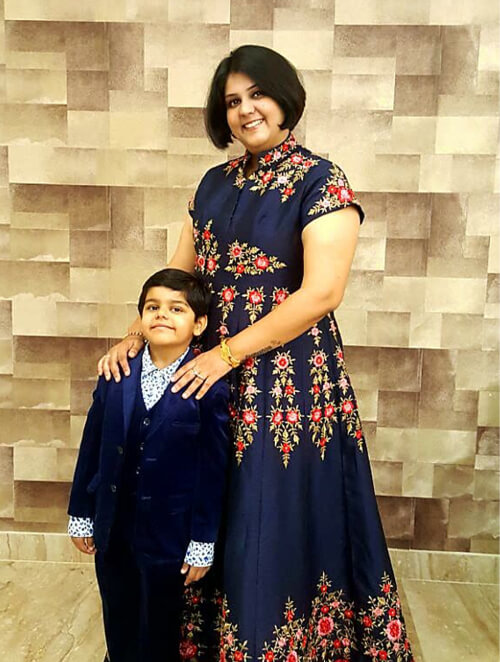How to prepare Toddlers for Kindergarten
 18259
18259

super easy
I remember my initial days of school when sending the kids to playschool wasn’t really a thing, and it was a grave topic of discussion in a middle-class family as to why do we need to pay someone to engage our child and allow her to play. Well, as I was left at the school gate by my mother, I felt so scared in that vast place, I instantly ran back to her and consequently, my mom had to stay outside the classroom, in front of my eyes, so that I was just sobbing but wasn’t fleeing the class. This continued for a month until I finally settled down. I believe most of us have passed this phase of life with a similar or slightly different variation in reactions. Today we have understood how much playing and playschools are crucial for strengthening the cognitive abilities and developing the interest for studies and other significant activities in kids. Now, if you’re a mother to a 2-3-year-old toddler, you might be probably turning in your bed throughout the night because of the anxiety regarding your kid’s first school and his first step into the outer world. Your kid might be more dreadful or enthusiastic about this idea, it somewhat depends on the nature of the kids, but a lot rides on how well you prepare him for kindergarten.
This article would cover some of the things you can do to ensure a smooth transition from home to school for your child as well as you:
1. Make a proper schedule and routine: Your child might have a routine of its own, but it’s imperative you fix a new schedule before he starts his school. Start early so that the change in routine isn’t sudden for your kid, and he must adjust well to it. Set an early to bed, early to rise sleep routine, fix the time of their meals and type of their meals, dedicate time for playing and reading, reciting, drawing, etc too.
2. Set-up daily chores: Schools have teachers and staff that can look after your kid’s personal needs, but he needs to learn how to do things on his own like unzipping his bag and lunch box, dressing on his own, and wearing his shoes. The more independent the child is, the better. Start making him responsible by giving small responsibilities such as feeding the pet, picking up his plate, keeping things at their place after use, etc. Be patient and support him in learning to do these small tasks.
Tips on shopping for your kids
Choice of fabric: Comfort is important Choose simpler clothes Choose season-specific clothing while purchasing clothes for your kids. Be size-specific: Use the size charts to purchase clothes that fit your kid exactly. Buy easy to wear clothes. Avoid over-shopping
3. Read and learn with them: It’s true that kids would learn after they start going to school, but a little pre-acquired knowledge can not only prepare him for school but help him understand things better. Tell and read him stories from colorful children’s storybooks. This would allow them to take in vocabulary required for success at school. Stories that tell about the school would not only encourage them about the activities at school; they would become more comfortable at the idea of going out. Allow them to learn and identify articles from picture books.
4. Plan a small meet and greet with the school: It would be very beneficial if you can pay a visit to the school along with your kid a couple of times before he actually joins in. You can introduce him to his potential teacher too. Moving out from the safety of your house can be intimidating to an adult, too, then your young one is bound to feel uneasy in a new space all alone. You can point out things in the school like the playground and tell him that he will be playing here, he will be sitting in that classroom, he will be eating with those people, and so on. It would make your kid comfortable as you fill their mind with positive expectations.
5. Teach them basic etiquette: A toddler’s mind is like wet cement. Whatever gets imprinted there, it becomes permanently printed in their minds as they grow. Teaching them basic etiquettes like usage of magic words please, sorry, thank you, excuse me, etc., common greetings to say when they meet people hello, good morning, good afternoon, good evening, bye, etc. and table etiquettes must be taught to them by the parents even before they start going to school. These habits would go a long way and also help your child do better in schools and social circles.
6. Say a good good-bye and take care of separation anxiety: How much did you cry when you were bidding farewell to your family after your wedding. It’s sort of a similar experience for the child when he has to be dropped off at the gate, leaving his family behind while entering a new world. Keep your good-byes short and positive. Lingering would only make things tougher. There might be some tears and crying, but you must not show your anxiety to the child as they are pretty good at gauging parent’s reactions and mirroring them.
Assure your kid that he’s going to be safe, and he will have lots of fun and that you will be there to pick him up even before he realizes. Few days after adjusting, good-byes won’t be so difficult. Trust me! I know, as the day of your baby’s first day of school is nearing, your heart is sinking yet enthralled at the idea that your baby would take their first step to learn about this world. It might feel like how your little one was born just yesterday, and so soon it’s time to send him out, away from even if it’s a matter of few quick hours. Trust me on one thing; it’s going to be fine. Your kiddo would love interacting with the outside world. You must encourage him, fuel his curiosity, answer his questions, and concerns patiently. Make him feel secure, independent, and listened to. Kids need assurance and encouragement at every step during this heavy transition. Take a deep breath and get working on the above tips!
Follow us-
Instagram/ Facebook/ Youtube/ Pinterest





Leave a Reply